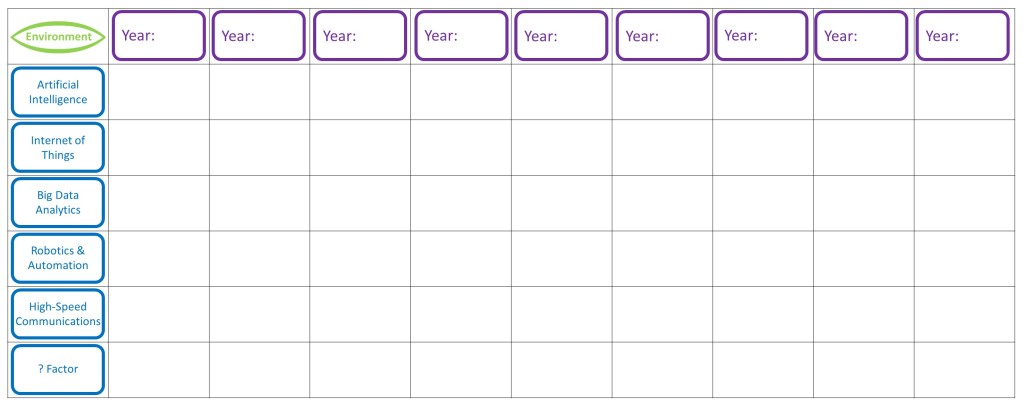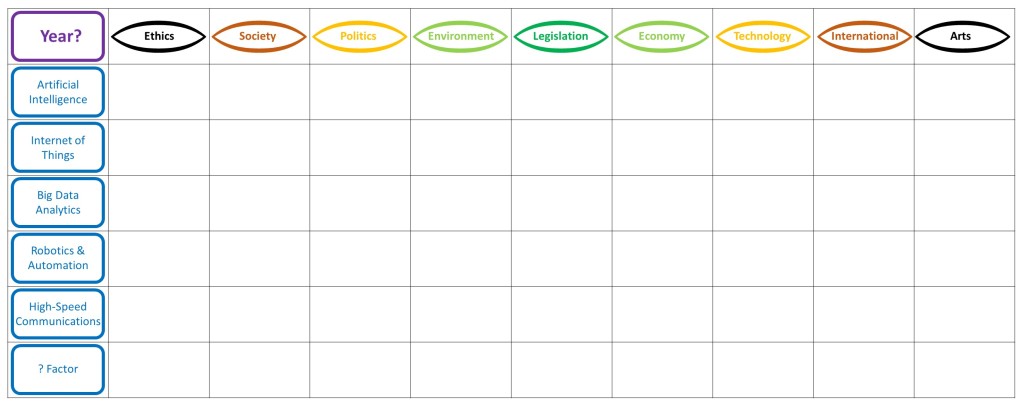In previous posts, we’ve introduced the ESPELETIA dimensions (Ethics, Society, Politics, Environment, Legislation, Economy, Technology, International and Arts) and the ‘key drivers’ (AI, IoT, Big Data, Robotics, Communications and the ‘X Factor’). We now build this into a complete futurology tool for projecting into the future, and provide a complete set of documentation for research and/or classroom exercises.






